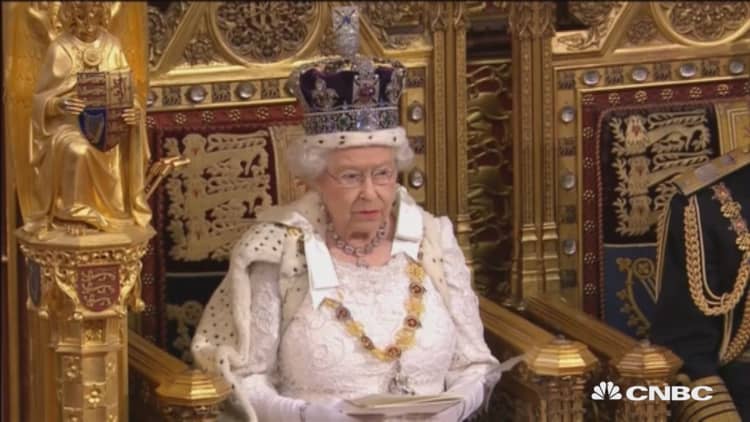
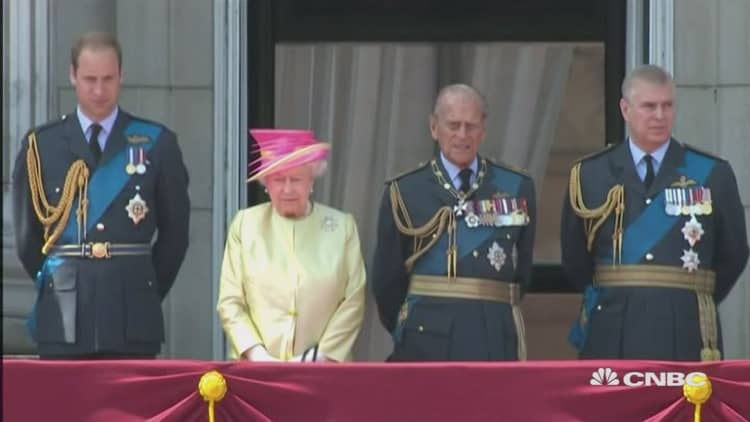
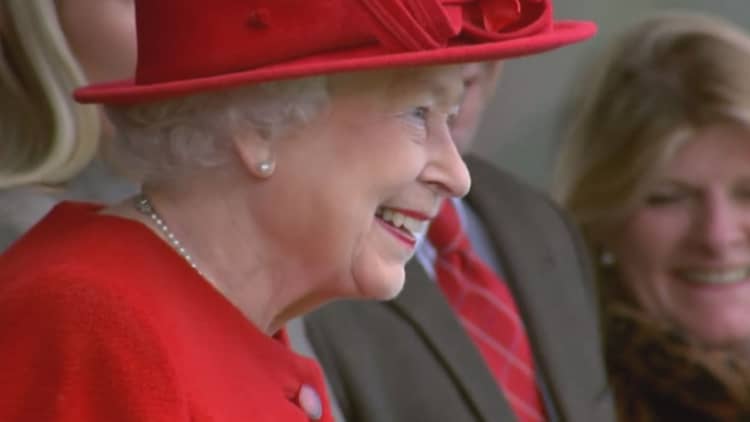
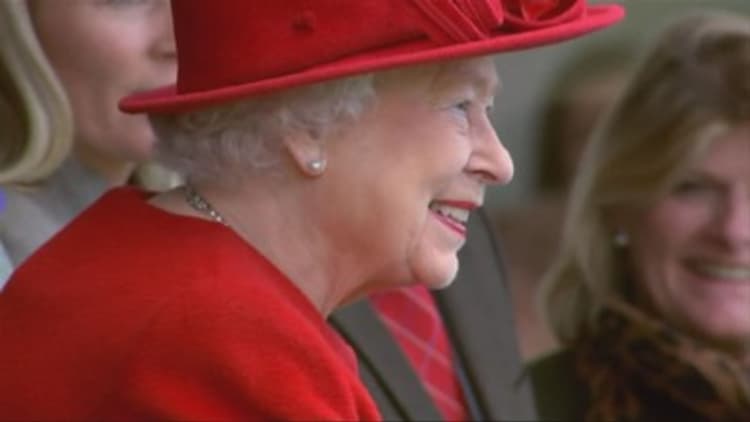
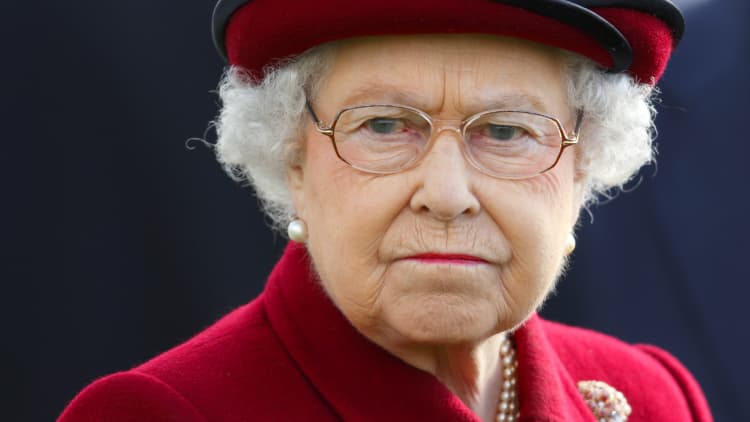
One of the world's most famous monarchs, Queen Elizabeth II, is turning 90 and when it comes to royal occasions, this family is renowned for its festivities.
On April 21, the Queen celebrates her 90th with the Duke of Edinburgh in Windsor, where they are expected to unveil a plaque marking "The Queen's Walkway", followed by the Queen lighting the first beacon of more than 900, that are to be lit up across the U.K. and overseas.
This milestone isn't just fixed to 24 hours either. On Wednesday, the Queen visited the Royal Mail Windsor delivery office to mark the U.K. Postal Service's 500th anniversary.
Celebrations are to then be extended into May and June to celebrate the Queen's 90th and her "Official Birthday", which takes place annually on a Saturday in June.
Celebrations include those at Windsor Castle's private grounds during May 12th to 15th. Some 25,000 tickets went on sale for this last November, only to sell out hours later.
"Royal weddings, anniversaries, births, these are occasions for national rejoicing and get huge international coverage," Richard Fitzwilliams, royal commentator told CNBC via email.
The family itself attends around 2,000 official events nationally and internationally every year, which not only gives these events a "high profile" but is extremely important for the U.K. economy.
"As a symbol of national unity the monarch's presence at certain events is expected (at 89 she attended over 300 in 2015), there are anniversaries and jubilees that help bind the nation together," Fitzwilliams said.
"The Queen is [the U.K.'s] most traveled monarch and trips abroad by members of the Royal Family are funded by the taxpayer (or host country) and they promote goodwill, British trade and cultural exchanges."
Popular events or tourist attractions linked to the family – like Royal Ascot, Windsor Castle – generate a huge economic boost for the U.K. The monarchy is worth an estimated £56.7 billion ($81.3 billion) to the economy, Brand Finance, a consultancy firm reported in 2015.
The future of the monarchy
Ahead of the Queen's 90th, questions have been raised as to how popular the monarchy is and whether it will last in decades to come.
In a recent commentary piece published on the Daily Mail website, Dr Anna Whitelock, historian and director at Royal Holloway's London Centre for Public History, said it was possible that the Queen's longevity and faithfulness could "disguise much deeper misgivings" about the monarchy's role in the 21st century.
"There is no absolute guarantee about the monarchy's long-term survival," Whitelock said, making reference to potentially influential factors on the monarchy's future such as Prince Charles, and the family's connection to the public, such as the younger population.
Despite the concerns raised, Fitzwilliams remains confident that the monarchy will continue and the Queen will not abdicate.
"I see the monarchy as part of Britain's DNA, and look at the national and international fascination with it. Why should it ever be abolished? It will change, as times do, and the House of Windsor has shown a remarkable capacity to reinvent itself," said Fitzwilliams, noting the Queen's involvement in the London Olympics, and the family's adoption of social media.
A recent Ipsos MORI survey backs this up, with results revealing support for the monarchy still remains strong. Seventy five percent surveyed said the monarchy did have an important role to play in the country's future, while less than 20 percent said they'd prefer the U.K. to be a republic.
"The U.K. public admires the Queen's dedication to duty and commitment which she first made in 1947 in the broadcast from Cape Town when she was 21. They appreciate that she will never let them down," said Fitzwilliams.
"She will not abdicate. The public feel (the Queen) has been a pivotal symbol of continuity in fast changing times."









